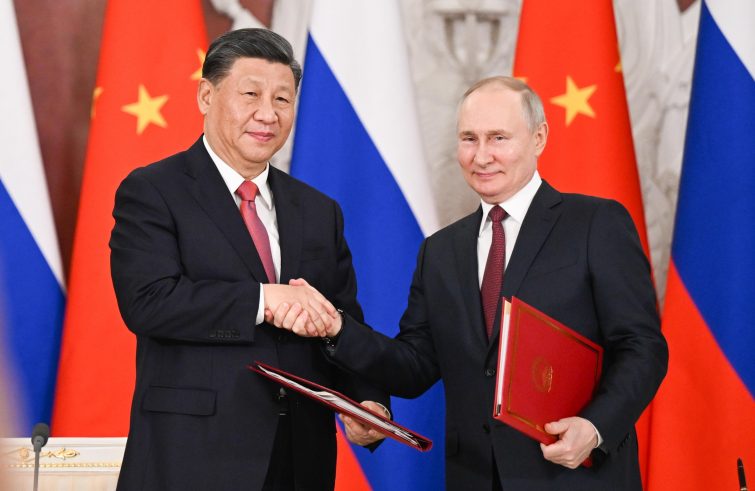
An “important meeting” aimed at finding a peaceful solution to the Ukrainian conflict; an unprecedented “historic” role as diplomatic mediator for China. However, “”a two-party agreement that does not include Ukraine, that does not involve Europe in the talks and that leaves out the USA, risks being deadlocked.” Speaking with SIR, Francesco Sisci, a long-time foreign correspondent for various newspapers from Beijing, and a senior researcher at the China People’s University, thus commented on Chinese President Xi Jinping’s visit to Moscow, despite his wish to remain “optimistic.” The two-day visit ended on the morning of March 22, just as a barrage of bombs and attacks rained down on the entire Ukrainian territory. From the city of Zaporizhzhia, southern Ukraine, to Kyiv, where four people were reported killed by the Russian drone attack on the city of Rzhyshchiv, south-east of the capital.
Chinese President Xi Jinping arrived in Moscow with a 12-point “peace plan.” The first point refers to compliance with the sovereignty, independence, and territorial integrity of all countries under internationally recognised laws. The second point envisages an end to the “Cold War mindset”, emphasising that “regional security cannot be guaranteed by strengthening or even expanding military blocs.” The plan calls for a ceasefire and terminate hostilities. It claims that talks and negotiations are “the only viable way forward.” The Plan equally calls for the protection of civilians and the creation of humanitarian corridors for evacuation from war zones, and a ‘no’ to the use of nuclear weapons and attacks on civilian nuclear reactors. “China’s proposal could be the basis for a peaceful settlement in Ukraine” said President Putin, suggesting that he is open to the possibility of engaging in dialogue.
The visit has strengthened relations between the two countries. “There is a clear effort to find a solution to the Ukrainian conflict by both parties”, notes Sisci.
“China – but also, I believe, the Russians, who are facing increasing war difficulties – clearly seek a peaceful solution to end the war.
“The problem is that it is a two-party agreement – adds the expert – while the war now concerns not only Ukraine, as it involves Europe, America and other parts of the world.” Yet while fighting intensifies, “I do believe – says Sisci – that now is the time to see the glass half full and be optimistic.” Some commentators see China’s mission to Moscow as nothing more than a ‘diplomatic show’ staged under the global spotlight. “Whatever it is- the journalist insists- it must involve Ukraine and Zelensky.
We must wait and see if there will be a phone call between President Xi Jinping and Zelensky, as announced. Should this be missing, it’s will be like saying, we organised lunch, we set the table, but the dishes are missing and there is nothing to eat.”
One thing is certain, and it sends out an important message: it is the first time ever that China has played a diplomatic role as conflict mediator. “It is an unprecedented development,” points out Sisci, describing the reasons for this involvement. “In fact – he added – China had somewhat unwisely become involved at the beginning of the war, giving credence to the Russian argument that Moscow would easily win in Ukraine.
After a year, it clearly failed to achieve that victory and at this point, as it has now hitched itself to this bandwagon, China needs to find a way to prevent being caught up in Russia’s humiliation and Putin’s political defeat, which is a fact.”
In short, a successful step has been taken towards an agreement between Russia and China on Ukraine, “and it was an easy one. Now the challenge is to involve Ukraine, as well as the countries that supported it such as Poland, the Baltic countries, Bulgaria, Romania, and of course the United States and the rest of Europe. A peace agreement with Russia is unthinkable without bringing in all the parties involved. The situation is extremely complex and China should initiate talks on Ukraine also involving the United States.”









